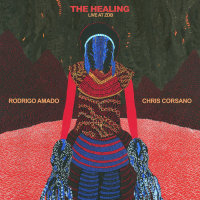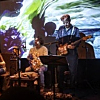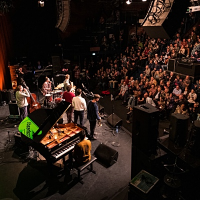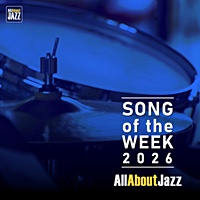Home » Search Center » Results: Rashied Ali
Results for "Rashied Ali"
Results for pages tagged "Rashied Ali"...
Rashied Ali

Born:
Rashied Ali is a progenitor and leading exponent of multidirectional rhythms/polytonal percussion. A student of Philly Joe Jones and an admirer of Art Blakey, Ali developed the style known as "free jazz" drumming, which liberates the percussionist from the role of human metronome. The drummer interfaces both rhythmically and melodically with the music, utilizing meter and sound in a unique fashion. This allows the percussionist to participate in the music in a harmonic sense, coloring both the rhythm and tonality with his personal perception. By adding his voice to the ensemble, the percussionist becomes an equal in the melodics of collective musical creation rather than a "pot banger" who keeps the others all playing at the same speed. Considered radical in the 1960s and scorned by the mediocre, multidirectional rhythms, polytonal drumming is now the landmark of the jazz percussionist. A Philadelphia native, Rashied Ali began his percussion career in the U.S
Rodrigo Amado: The Healing

by John Sharpe
The Healing unites tenor saxophonist Rodrigo Amado and drummer Chris Corsano in a tremendous set that tempers visceral power with nuanced exchange. An archival release, it documents a 2016 live date at Lisbon's ZBD Club, marking the second recording by this duo, after a 2014 session issued as No Place To Fall (Astral Spirits, 2019). However ...
Marilyn Crispell: Fearless, Deeply Sensitive and Shaping the Moment

by Dean Nardi
As Marilyn Crispell talked about her multitude of recent recordings, either solo or with this trio or that quartet, she mentioned needing to pack her bags before going out on tour. She has lived in Woodstock, New York since 1977 and is comfortable there. “When I'm at home, not out recording, I look out in the ...
New Releases, Record Store Day Specials, And Ivo Perelman On Leo Records

by Bob Osborne
This show includes many new releases and lots of those are self produced demonstrating the healthy state of independent music production in the industry. There is some classic jazz meets rock from over 20 years ago plus three outstanding live albums from Resonance Records for Record Store Day 2025. In addition with the planned release of ...
Lakecia Benjamin: The Jazz Trailblazer Redefining the Live Experience

by Steven Roby
Lakecia Benjamin doesn't just play jazz--she lives it. A five-time Grammy nominee, saxophonist, and bandleader, she embodies a whirlwind of sound and soul that redefines the boundaries of modern music. When she talks about her latest album, Phoenix Reimagined (Live), it's not just an exploration of her artistry; it's an invitation to feel the pulse of ...
Mephistopholes to Orgasm Revisited

By Alan Shorter
Label: Ezz-thetics
Released: 2024
Track listing: Mephistopheles; Parabola; Joseph; Straits Of Blagellan; Rapids; Outeroids; Orgasm.
McCoy Tyner / Joe Henderson: Forces Of Nature: Live At Slugs'

by Joshua Weiner
How does one go about nominating Zev Feldman for a Nobel Peace Prize? Time and again, the intrepid “Jazz Detective" tracks down unknown, unheard, un-even-hoped-for sonic artifacts, painstakingly brushes away the audio dust and grime, and puts us front and center at events that rewrite the history of jazz. Forces of Nature: Live at Slugs' another ...
Schick, Håker Flaten, Steidle: The Cliffhanger Session

by Mark Corroto
For listeners who enjoy when an artist or group zig when we expect them to zag, I give you The Cliffhanger Session. The abrupt change of direction for Ignaz Schick, Ingebrigt Håker Flaten and Oliver Steidle is the switch from electro-acoustic energy noise to an all-acoustic performance. The German-born musicians, Schick and Steidle, created ILOG, an ...
Brilliant ECM Luminessence Series Shines New Light On Classic Vinyl

by Joshua Weiner
Blue Note. Verve. Impulse! ESP-Disk. Just saying the name of such storied jazz record labels immediately conjures up each one's distinct aesthetic, from the music to the cover art. By the close of the 1960s, jazz was undergoing a period of intense change, with an unprecedented mixing and matching of styles and influences--both musical and political--that ...
Marion Brown: Three For Shepp To Gesprachsfetzen Revisited

by Mark Corroto
It's not too late to catch up with alto saxophonist and composer Marion Brown. Thanks to this excellent reissue and remaster series, you can hear the innovative recordings from this master musician. This release follows his 1965/66 discs Capricorn Moon To Juba Lee Revisited (ezz-thetics, 2019) and 1966/67 discs Why Not? Porto Novo! Revisited (ezz-thetics, 2020). ...

















